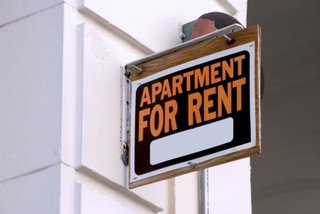Owning real estate has long been considered a way to build a nest egg, so many would-be real estate tycoons start with one single family home and try to add more houses and apartment buildings as time goes by. If they’ve purchased for the right price and can keep the units rented for more than the monthly payment, they see a positive cash flow and begin building a bank account.
But, if times get tough and they’re unable to keep their properties fully rented, or if repair costs escalate, those properties can become a liability instead of an asset. If other financial disaster strikes, they may even begin using the rent money for the mortgage payment on their own homes.
Since landlords and tenants don’t usually discuss the landlord’s financial situation, tenants can be caught unaware when the house or the apartment they occupy suddenly goes into foreclosure. Remember that only owner-occupied homes are eligible for relief under the Streamlined Modification Program, so foreclosure of rental properties is a very real possibility.
To address this problem, Fannie Mae announced that it would introduce a new policy in 2009 to give aid to renters. While the rule of thumb used to be that all REO properties remained vacant, now people living in foreclosed properties will have the opportunity to sign a new lease with Fannie Mae while the home is marketed for sale. They may also be given money for moving expenses.
Freddie Mac is working on a similar plan.
Of course, not all homes have a mortgage with Freddie or Fannie, and a tenant wouldn’t know if it did or not until they were notified after foreclosure had begun. So, if you have cause to believe the home you rent might be going into foreclosure, investigate the laws in your state to learn how long you will be allowed to stay after a filing.
Since foreclosure actions, judgments and bankruptcy filings are all public record, you can also do some investigation to see if any trouble is brewing. Any action related to your landlord should be listed in district court records or at the County Recorder’s Office. If you’ve been dealing through a rental agent and don’t even know who your actual landlord is, you can find out through cross-referencing from the address and legal description.
Even renters need good credit scores now, so be prepared for a possible move with the highest possible FICO scores. Get your credit report – with scores – and see how you stand today. Then, unless you’re already hovering in the mid 700′s, begin taking steps to raise that score.




